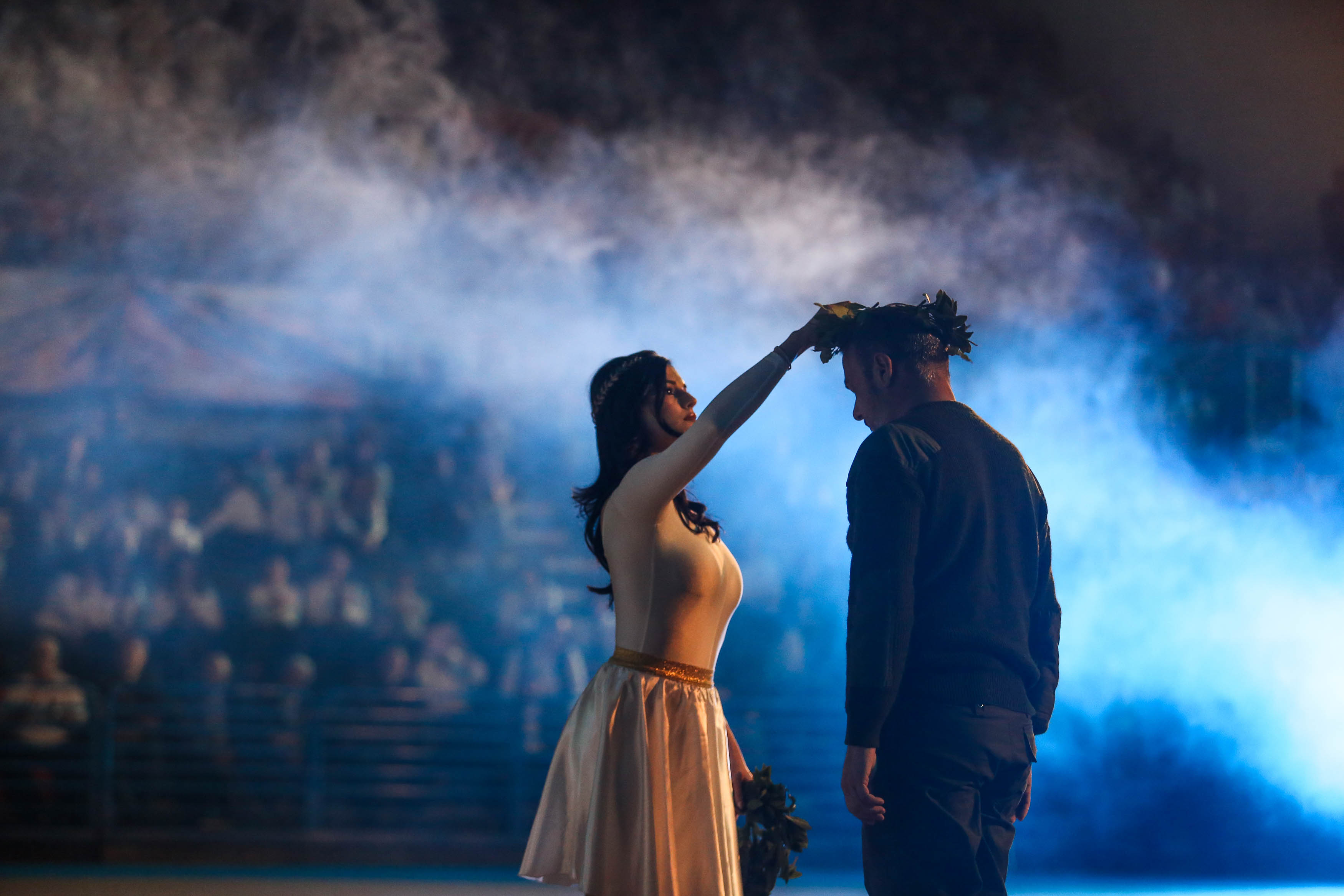THE WAY THINGS ARE
I’m Irish, love my country and my culture. My father’s name is described as Normo-Celtic, my sister, older by 16 years, always told me I had a retrousse nose, my aunt said I had a touch of the Viking in me. My children are half Irish, half Cypriot. How are you disposed towards your DNA? Would you accept the result of a test or turn it into Do Not Admit mixed genes?
Current research suggests that Cypriot DNA is not as Greek as many Cypriots think. Some Irish romantically still see themselves as Celts, a word of Greek origin. Both Irish and Cypriots feel intense loyalty to an ancient culture.
How people guard their cultural legacy is linked to the living language they call their own, and that is one major difference between the Irish and the Greeks. Richard Pine, based in Corfu, writes a Greek Letter for The Irish Times. In a January column, he described how a guest visiting the Corfu home of the famous Durrell brothers, enquired what ‘philhellenes’ on the commemoration plaque meant.
When Pine playfully explained the plethora of Greek words adopted into English (philanthropic, mathematics, etc.,) and how Greeks call themselves ‘Hellenes’, the tourist didn’t care, Greece was just a warm holiday resort, its antiquities and language inconsequential. That Greece had been under foreign rule, listing some of it, with Ottoman control lasting more than two hundred years, ‘…is not apparent to today’s tourists.’
Neither is it apparent to many Cypriots that Ireland suffered 800 years of foreign rule resulting in English becoming the predominant language as the oppressors did their best to suppress the native Gaelic. When I explain to those who express disbelief in the ‘prideless’ Irish allowing their own tongue to become almost extinct, they often decry ‘It’s your culture, your roots!’ I say those centuries of consecutive English rule probably made the difference.
Happily, filmmakers, authors and singers (folk is making a comeback) have recently found joy in its creative use. It’s not dead just in need of loving resuscitation, for a language of beauty it is.
On tech changes to modern education in Greece, Pine writes ‘The crisis in the falling numbers of applicants in the humanities, has led to some faculties in the humanities to be redesignated as ‘digital.’ He goes on to say if new Crete University courses are a means to “integrate artificial intelligence with humanities” it’s reinventing something Greece had in the 2nd century, the ‘Antikythera mechanism’ described as the world’s first analogue computer.
Irish used to be compulsory at school, especially at exam level, in my youth. Controversy has arisen in Ireland over students trying to avoid Irish language courses. A law allows autistic youngsters avoidance but some students without that problem excuse themselves from Irish lessons, going on to study other, commoner European languages.
The Irish are proud to define themselves internationally as a Celtic Irish nation, making it a saleable commodity to tourists, yet a majority exhibit inexcusable laziness as a people, to regain one of the very things that made natives different to oppressors – the language of the Celtic ancestors so eagerly claimed. It seems Celtic heritage is what is wanted while conveniently rejecting the ancient speech and alphabet.
Today’s Irish are no purer Celts than Cypriots are pure Greeks. But identity clings to what we feel we are, what we were brought up with, what we are now, what we love, what we selectively choose to be. Achaeans and Myceneans brought ancient Greece to Cyprus, and Greek became the most embedded culture and language, still loved and clung to even though some Cypriots will say the mainlanders see them as lesser cousins.
Being Greek is what Greek Cypriots have fought for, been immersed in for centuries. Pride in our esteemed cultures and history as indigenes of our little islands remains towards our beloved ancients. No matter what mix our bloodline shows, our cultures survived.






Click here to change your cookie preferences